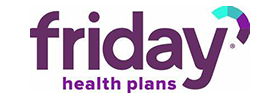“HO” insurance coverage – you could certainly use it, and if you’re not already familiar with the term, we promise that’s not an insult. It actually just refers to homeowners insurance, but can also apply to renters’ insurance as well. Whenever possible, it’s extremely important to have your dwelling covered. Your residence is likely one of your biggest, if not actually your biggest financial asset, and getting insurance coverage can mean the difference between a temporary setback and a major disaster if something happens to it. Of course, you never need this kind of coverage until you do, so if it’s something you can budget for, do it.
Fortunately, there are different kinds of coverage, so depending on what your home is at the greatest risk for, you might be able to choose a cheaper option. The following nomenclature is standard everywhere except Texas, so talk to your agent for more info if you’re looking for coverage there.
HO-1, HO-2 and HO-3 policies are all homeowners’ policies from specific perils. HO-1 is the most basic, and usually the most affordable. HO-2 will include coverage against things like damage from falling objects or ice, which isn’t really as big of a risk factor if your home is in, say, Arizona. In most cases, if you’re living in a place like that, you can stick to HO-1 and save yourself some money. HO-3 covers everything that’s covered in an HO-1 or HO-2, as well as anything that isn’t specified with the exceptions of damage from war, a nuclear plant malfunction (read: *kaboom*), an earthquake, or a flood. This option is great if you want absolute protection.
HO-4 is renters’ insurance, and is usually more affordable than you’d think. It protects your personal property from everything an HO-2 would cover except for the building itself – it’s your landlord’s responsibility to insure that. An HO-5 is a bit of an uncommon policy. It’s total coverage against basically everything for both the building and personal property. It’s pricier, as you might imagine, and there aren’t very many situations where an HO-1, HO-2, or HO-3 wouldn’t do the trick just as well. HO-6 is a condominium policy, and carries special protections for such situations. The HO-8 is similar to an HO-1, except that it covers repairs or the actual cash value of an object that gets damaged. It’s useful in situations like an historic building that has greater replacement value than its market cost.
The terminology may differ depending on carriers and other factors, but this should give you a good idea where to start with your agent when you’re ready to get covered. Don’t hesitate to contact Client First if you have any questions!






 Click to Call
Click to Call Get Directions
Get Directions



































































